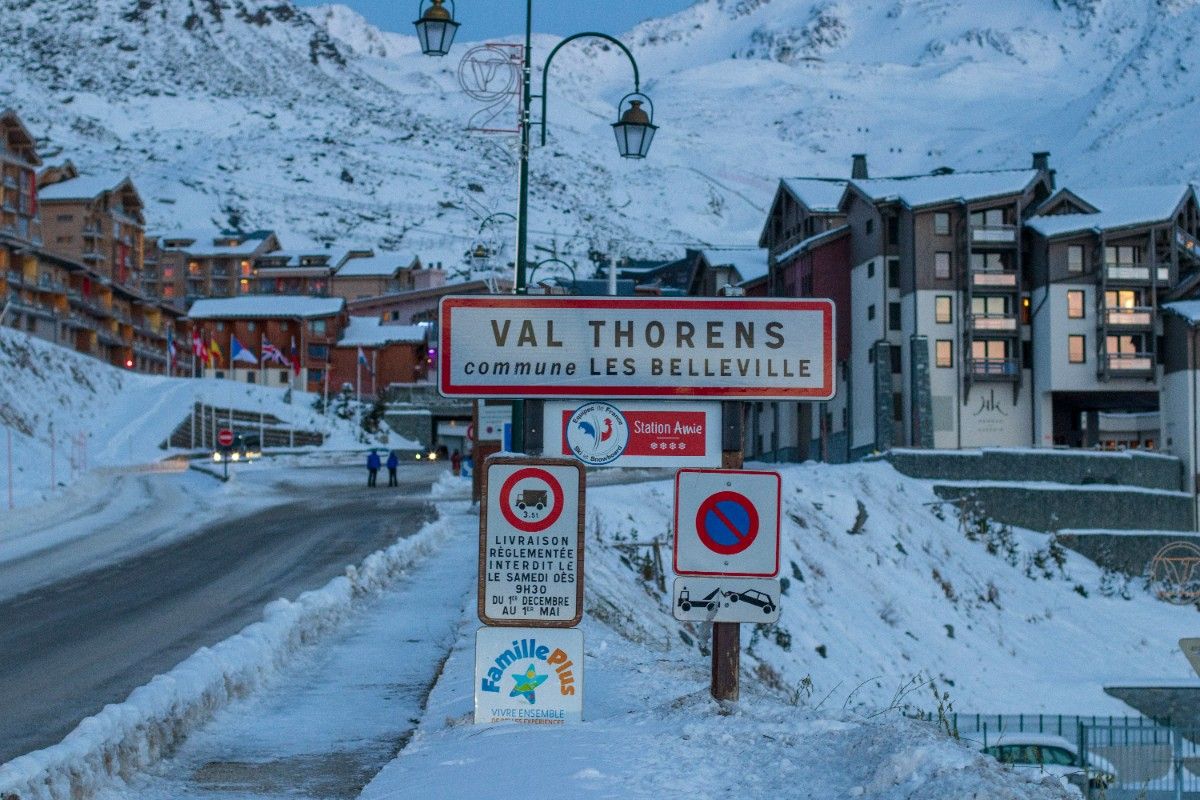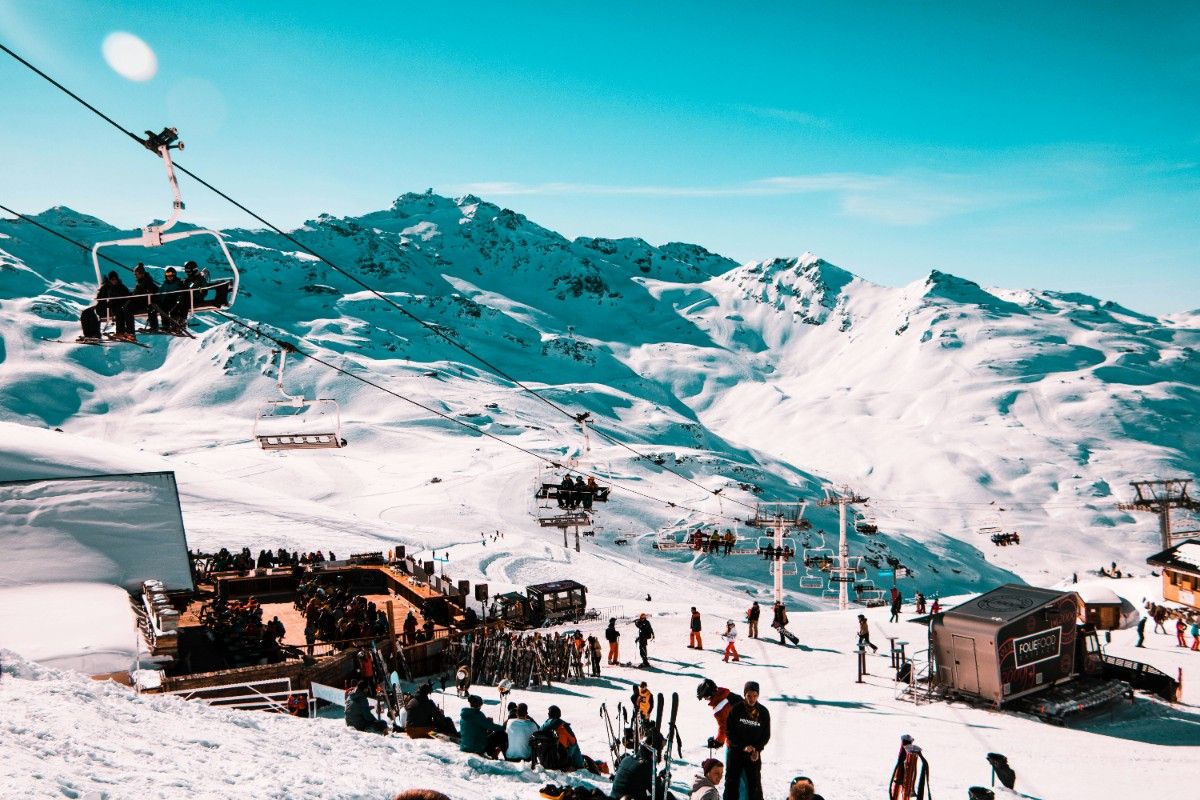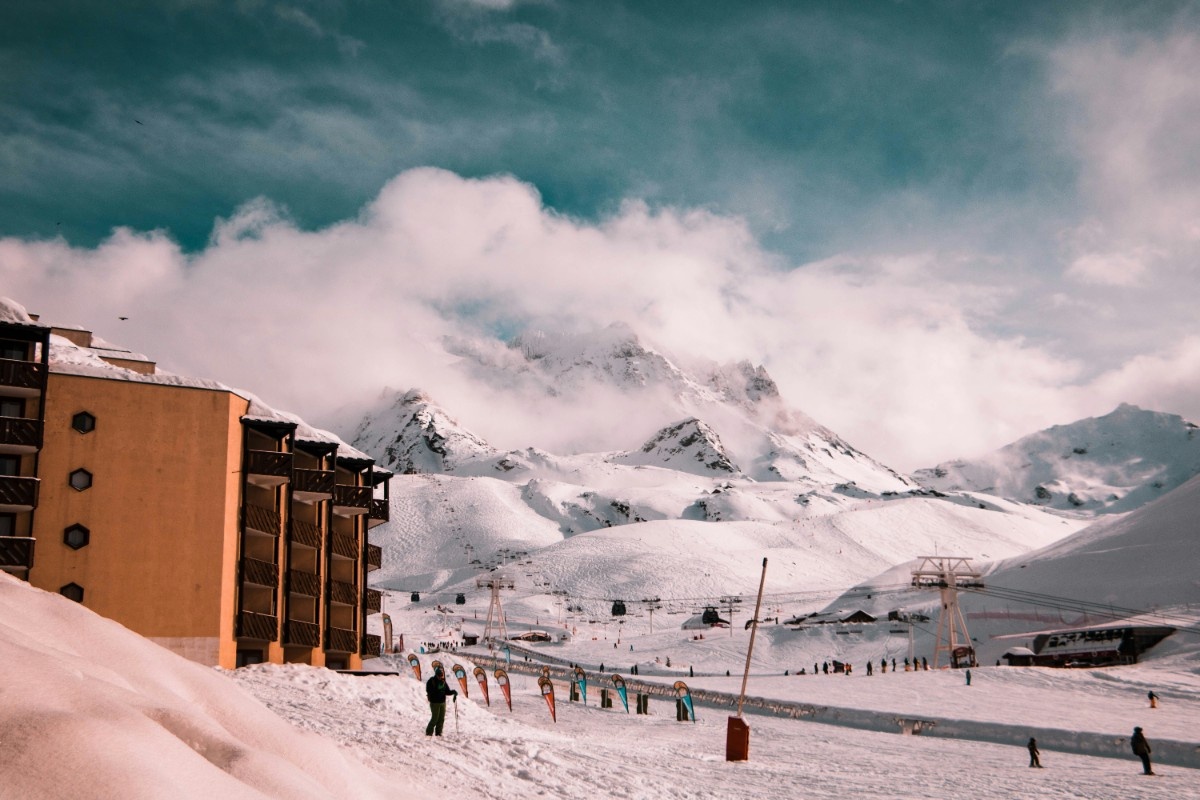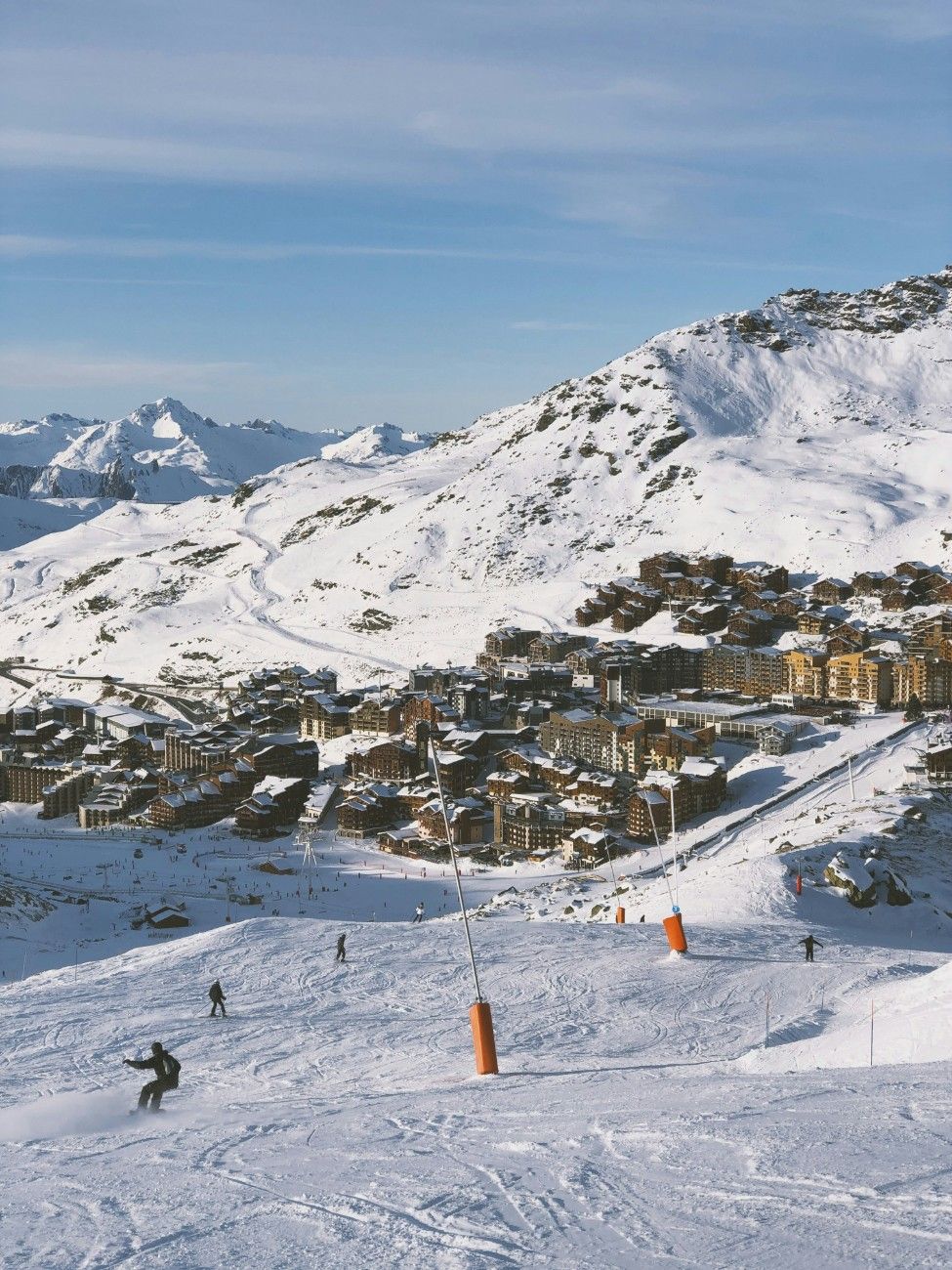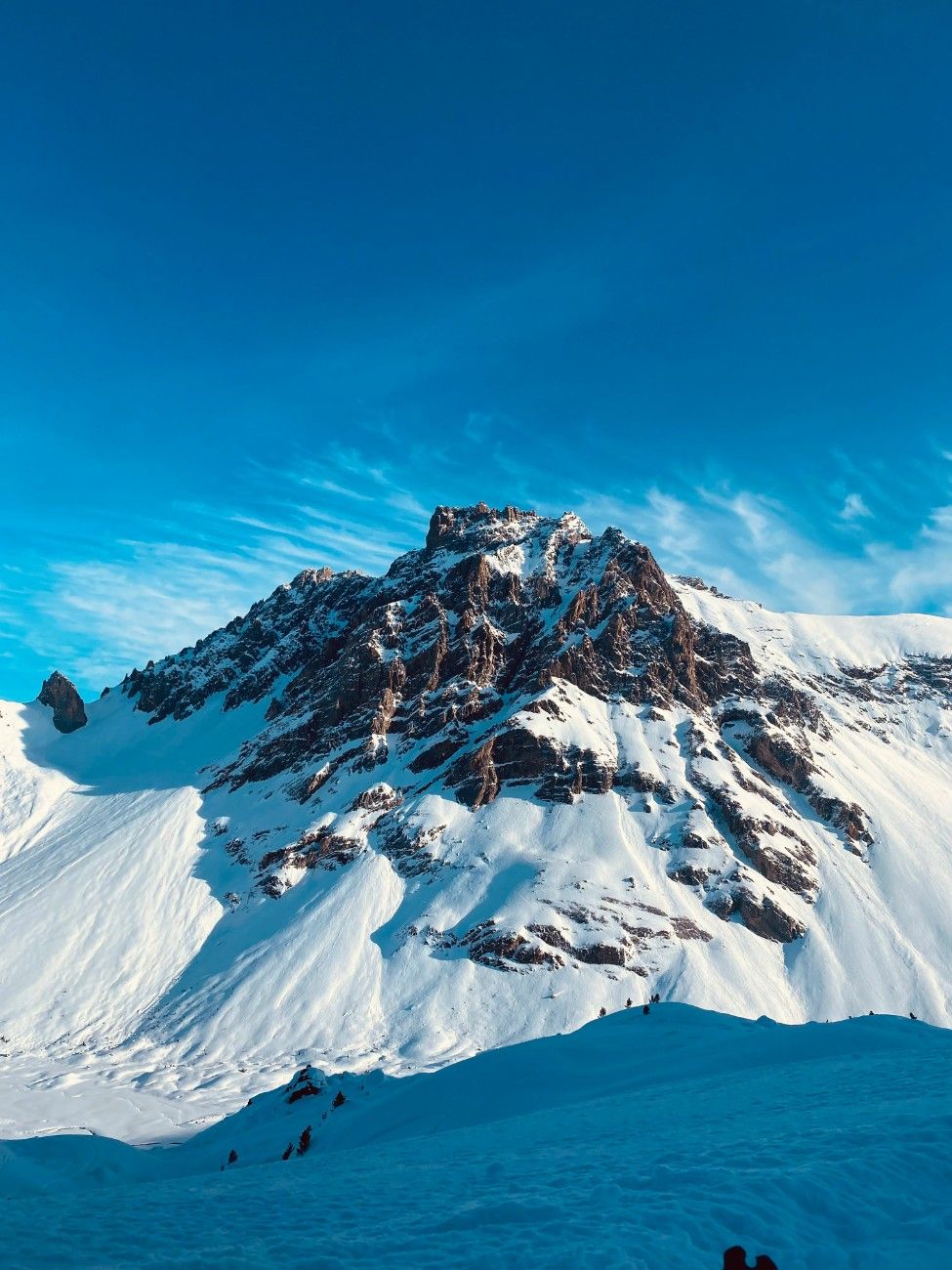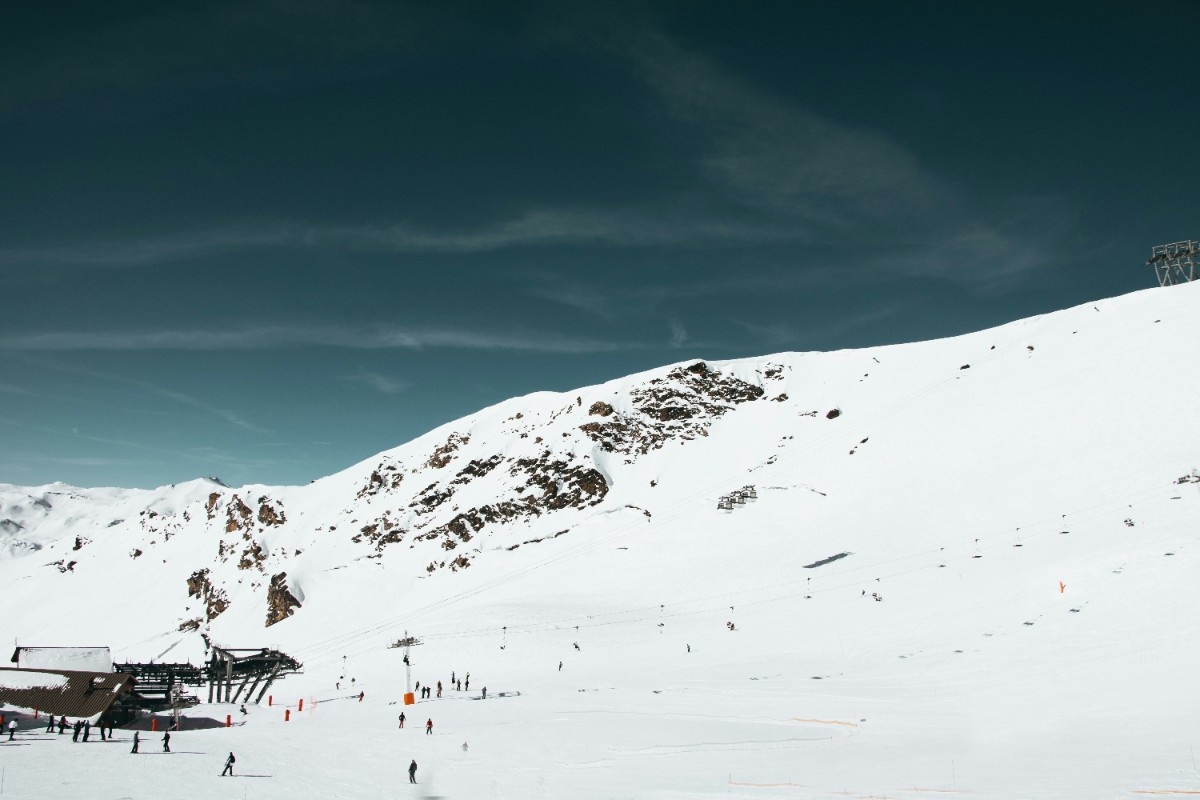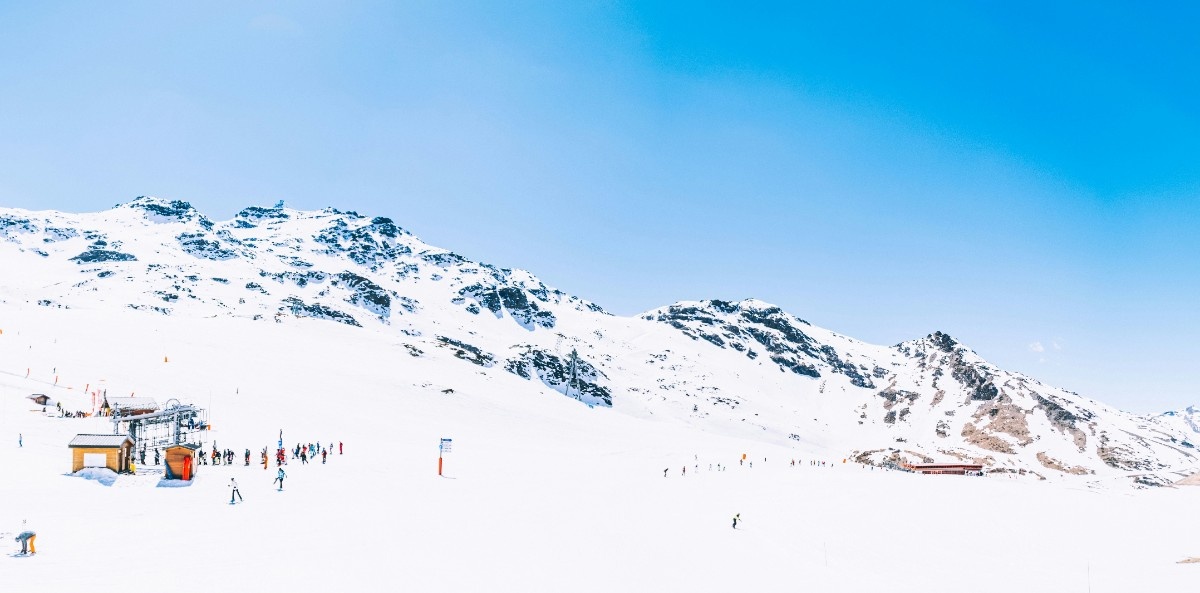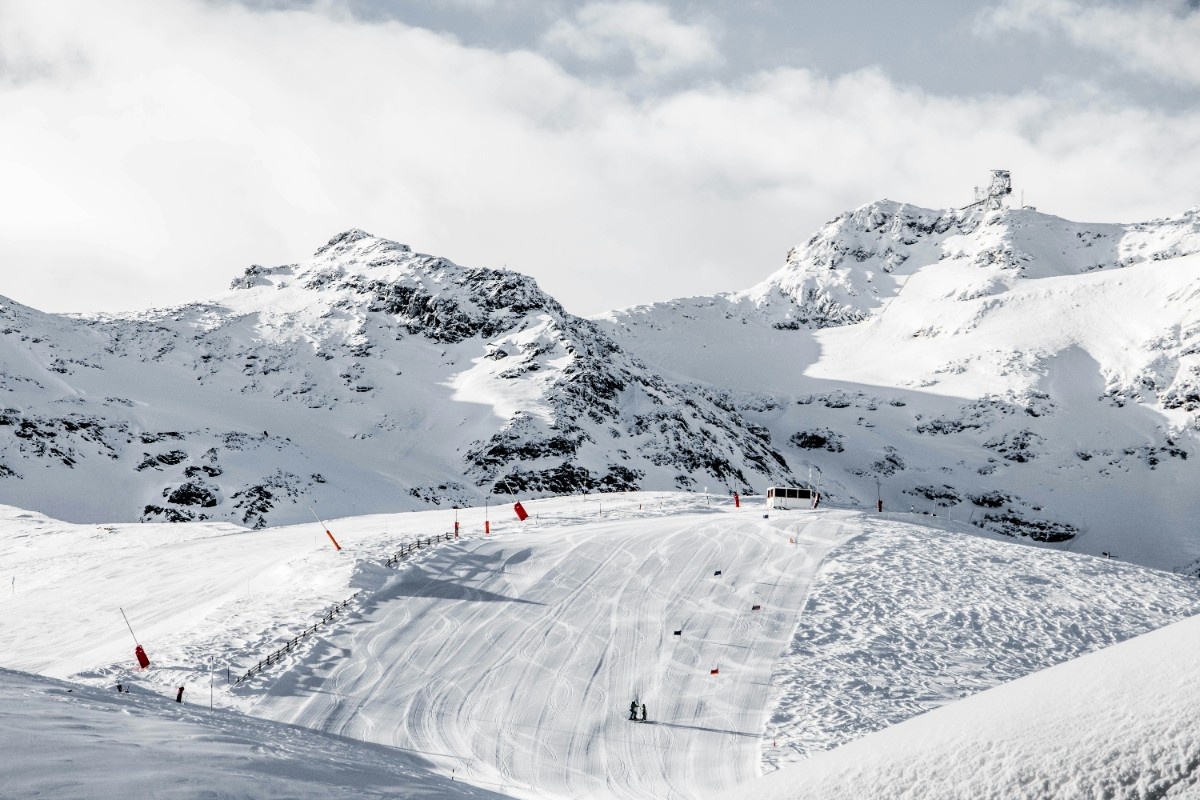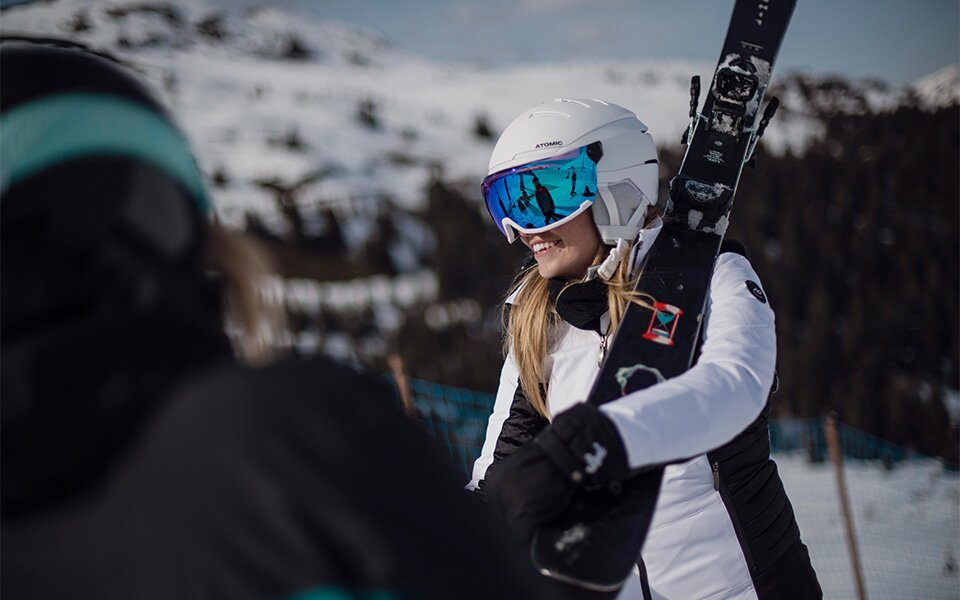Val Thorens stands as a beacon of winter sports excellence in the French Alps. This world-renowned ski resort offers an unparalleled combination of high-altitude skiing, modern facilities, and breathtaking scenery. Nestled in the Tarentaise Valley of Savoie, France, Val Thorens is part of Les 3 Vallées, the largest ski area in the world. Its reputation for exceptional snow conditions and diverse terrain attracts ski enthusiasts from across the globe. In this comprehensive guide, we'll explore everything you need to know about Val Thorens, from its impressive ski infrastructure to its comfortable accommodations and vibrant après-ski scene.
The Geography and Climate of Val Thorens
Geographical Location and Topography
Val Thorens stands as a testament to human ingenuity and nature's grandeur in the French Alps. Situated in the Tarentaise Valley of Savoie, France, this world-renowned ski resort is part of the expansive Les 3 Vallées ski area. What sets Val Thorens apart is its distinction as the highest ski resort in Europe, perched at an impressive altitude of 2,300 metres above sea level. This lofty position affords it unparalleled advantages in terms of snow reliability and season length.
The resort is nestled within a vast natural cirque, surrounded by six glaciers and six peaks, each soaring above 3,000 metres. This unique topographical setting creates a natural amphitheatre of snow and ice, offering skiers and snowboarders a truly immersive Alpine experience. The surrounding peaks include some of the most iconic in the region, such as Pointe du Bouchet (3,420m) and Cime de Caron (3,200m), which not only provide challenging terrain for advanced skiers but also serve as breathtaking backdrops for the resort.
Val Thorens' high-altitude location places it above the tree line, resulting in wide-open, treeless slopes that are ideal for skiing. This absence of trees allows for greater flexibility in piste design and maintenance, contributing to the resort's reputation for excellent ski conditions. The open terrain also means that skiers and snowboarders can enjoy panoramic views of the surrounding Alps, including glimpses of Mont Blanc on clear days.
The geological composition of the area plays a crucial role in shaping Val Thorens' ski terrain. The underlying rock formations, primarily composed of schists and limestone, have been sculpted over millions of years by glacial activity. This has resulted in a varied topography that includes gentle slopes perfect for beginners, as well as steep couloirs and off-piste areas that challenge even the most experienced skiers.
Climate and Snow Conditions
The climate of Val Thorens is characterised by its Alpine nature, which is significantly influenced by its high altitude. The resort experiences cold winters and mild summers, with the winter ski season typically extending from late November to early May, one of the longest in Europe. During the peak winter months, temperatures often remain below freezing, particularly at night, creating ideal conditions for snow preservation.
One of the most valuable resources for visitors planning their trip is the Val Thorens webcam. These live feeds, strategically placed around the resort, offer real-time views of slope conditions, lift queues, and general weather patterns. By checking the Val Thorens webcam before their visit, skiers can get a clear picture of current conditions and plan their ski days accordingly.
The Val Thorens weather is a crucial factor in the resort's success. Its high altitude means that it often receives snowfall when lower resorts are experiencing rain. On average, Val Thorens enjoys over 320 days of sunshine per year, combined with an impressive annual snowfall of around 6 metres. This combination of abundant snow and clear skies creates perfect conditions for skiing and snowboarding.
The resort's unique microclimate is influenced by its position at the head of the Belleville Valley. This location shields Val Thorens from warm air currents, helping to preserve snow quality even during milder periods. The surrounding peaks also play a role in weather patterns, often trapping snow-laden clouds and directing them over the resort.
For those interested in the science behind the snow, Val Thorens employs a team of expert meteorologists who constantly monitor weather patterns and snow conditions. They use advanced technology, including weather stations and satellite imagery, to provide accurate forecasts and maintain the slopes in optimal condition. This dedication to understanding and predicting the Val Thorens weather ensures that visitors can make the most of their ski holiday, regardless of when they choose to visit.
The Extensive Ski Area and Infrastructure
Pistes and Ski Terrain
Val Thorens ski resort boasts an impressive array of pistes and ski terrain, catering to skiers and snowboarders of all abilities. The resort forms a crucial part of Les 3 Vallées, which collectively offers an astounding 600 kilometres of pistes. Within Val Thorens itself, winter sports enthusiasts have access to 150 kilometres of runs, ranging from gentle nursery slopes to challenging off-piste routes.
The Val Thorens ski map is an essential tool for navigating this expansive terrain. It clearly delineates the various pistes, categorised by difficulty level using the standard colour-coding system: green for beginners, blue for intermediates, red for advanced skiers, and black for experts. The map also indicates the locations of ski lifts, restaurants, and other important facilities, making it easy for visitors to plan their routes and make the most of their time on the slopes.
One of the standout features of Val Thorens is its variety of terrain. Beginners can find their feet on the gentle slopes around the resort centre, while intermediate skiers have a wealth of blue and red runs to explore. Advanced skiers and snowboarders are well-catered for with challenging black runs and extensive off-piste opportunities. The resort is also home to a world-class snowpark, featuring jumps, rails, and obstacles for freestyle enthusiasts of all levels.
The high altitude of Val Thorens ensures excellent snow conditions throughout the season. Most of the pistes are north-facing, which helps preserve snow quality even in warmer weather. The resort has also invested heavily in snowmaking technology, with snow cannons covering over 40% of the ski area. This investment ensures good skiing conditions even in the rare event of poor natural snowfall.
Lift System and Infrastructure
The lift system in Val Thorens is modern and efficient, designed to transport skiers quickly and comfortably around the mountain. The resort boasts 31 lifts, including high-speed chairlifts, gondolas, and even a funitel (a type of cable car). This infrastructure can transport over 160,000 skiers per hour, significantly reducing queue times even during peak periods.
The design of the lift system allows skiers to access different parts of the resort and connect easily with the broader Les 3 Vallées area. The Cime de Caron cable car, one of the resort's flagship lifts, carries skiers to an altitude of 3,200 metres in a matter of minutes, offering access to some of the most challenging runs in the area and breathtaking panoramic views.
For those looking to explore beyond Val Thorens, the Val Thorens lift pass offers access to the entire Les 3 Vallées ski area. This comprehensive pass opens up a world of skiing possibilities, allowing visitors to experience the varied terrain of neighbouring resorts like Méribel and Courchevel. The interconnected nature of Les 3 Vallées means that skilled skiers can traverse all three valleys in a single day, enjoying a constantly changing landscape and a true sense of Alpine adventure.
The Val Thorens ski pass comes in various durations to suit different holiday lengths, from single-day passes to season-long options. For frequent visitors, there are also multi-day passes that can be used non-consecutively throughout the season. It's worth noting that there are often early booking discounts and special offers available, particularly for those planning longer stays or group trips.
In addition to the lift system, Val Thorens has invested in other infrastructure to enhance the skiing experience. This includes extensive grooming operations to maintain piste quality, state-of-the-art snow cannons for supplementary snowmaking, and a network of mountain restaurants and rest areas. The resort has also implemented a hands-free lift pass system, allowing skiers to access lifts quickly and easily without having to fumble with paper tickets.
Accommodation Options in Val Thorens
Hotels and Luxury Resorts
Val Thorens hotels offer a diverse range of options to suit various preferences and budgets. The resort boasts several high-end establishments that combine comfort with Alpine charm. These luxury hotels often feature spa facilities, gourmet restaurants, and stunning mountain views. Many also offer ski concierge services, making it easy for guests to hit the slopes without the hassle of carrying their equipment.
One of the most prestigious hotels in Val Thorens is the five-star Koh-I Nor, perched at the highest point of the resort. This hotel offers panoramic views of the surrounding mountains, a luxurious spa, and direct access to the slopes. Another notable option is the Fahrenheit Seven, a four-star hotel that combines modern design with a cosy Alpine atmosphere. Its ski-in/ski-out location and vibrant après-ski bar make it a popular choice among visitors.
For those seeking a more intimate experience, boutique hotels like Altapura offer a blend of luxury and personalised service. With its contemporary design and focus on wellness, Altapura has become a favourite among discerning travellers. These high-end hotels often provide additional amenities such as heated boot rooms, in-house ski shops, and dedicated children's areas, ensuring a comfortable and convenient stay for all guests.
Many Val Thorens hotels participate in package deals that include accommodation, Val Thorens lift passes, and sometimes even equipment rental. These packages can offer good value for money, particularly during off-peak periods. It's worth noting that hotels in prime locations, especially those with ski-in/ski-out access, tend to book up quickly during peak season, so early reservation is advisable.
Self-Catering Apartments and Chalets
For those seeking a more independent stay, Val Thorens accommodation includes a variety of self-catering apartments. These range from studio flats suitable for couples to large apartments that can comfortably house families or groups of friends. Most apartments come fully equipped with kitchenettes, allowing guests to prepare their own meals and save on dining costs if desired.
One of the largest providers of self-catering accommodation in Val Thorens is Pierre & Vacances, offering a range of apartments from budget-friendly options to more luxurious residences. Their properties are typically well-located, with many offering direct access to the slopes. Another popular choice is the Residence Le Hameau du Kashmir, which offers high-quality apartments with hotel-like services such as a spa and restaurant.
Val Thorens lodging also includes several chalet-style options, perfect for those seeking a traditional Alpine experience. These chalets often come with added services such as daily housekeeping and in-house chefs, combining the privacy of a standalone property with the convenience of hotel-style amenities. Chalets are particularly popular with larger groups or families, offering a home-away-from-home atmosphere and the flexibility to set your own schedule.
Many self-catering properties in Val Thorens have undergone recent renovations, reflecting the resort's commitment to maintaining high standards. These refurbishments often incorporate modern amenities such as Wi-Fi, smart TVs, and eco-friendly features, while still retaining a cosy Alpine aesthetic. Some apartments and chalets also offer additional facilities like indoor pools or saunas, adding a touch of luxury to the self-catering experience.
When choosing self-catering Val Thorens accommodation, it's important to consider factors such as proximity to the slopes, access to resort amenities, and the specific facilities offered by each property. While Val Thorens is a relatively compact resort, some accommodations are closer to the main lifts or the resort centre than others. Those staying on the outskirts may need to use the resort's free shuttle bus service to access certain amenities.
Budget-Friendly Options and Unique Stays
For budget-conscious travellers, Val Thorens offers several more affordable accommodation options. These include basic apartments and even a youth hostel, providing comfortable lodging without the frills of more upscale options. Despite the lower price point, these accommodations still benefit from the resort's excellent location and easy access to the slopes.
The UCPA Centre in Val Thorens is a popular choice for young adults and students, offering all-inclusive packages that combine accommodation, meals, lift passes, and equipment rental at very competitive prices. While the accommodation is basic, the social atmosphere and excellent value make it a hit with younger visitors.
For those looking for a truly unique experience, Val Thorens even offers the opportunity to stay in an igloo village. This unusual accommodation option allows guests to spend a night in a real igloo, complete with fur-lined sleeping bags and a traditional Savoyard dinner. While not suitable for a full holiday, it's a memorable addition to a ski trip for the adventurous traveller.
Sustainability is becoming an increasingly important consideration in Val Thorens lodging. Many properties are implementing eco-friendly practices, such as energy-efficient heating systems, waste recycling programmes, and the use of locally sourced products. Some hotels and apartments have even achieved recognised environmental certifications, appealing to environmentally conscious travellers.
When booking any type of accommodation in Val Thorens, it's advisable to do so well in advance, especially if you're planning to visit during peak periods like Christmas, New Year, or school holidays. Early booking often secures the best locations and can sometimes offer early bird discounts. Many accommodations also offer package deals that include Val Thorens lift passes, which can provide good value for money, particularly for those planning to ski for the duration of their stay.
Activities and Attractions Beyond Skiing
Winter Sports and Adventure Activities
While Val Thorens ski opportunities are the main draw for many visitors, the resort offers a wealth of other winter sports and adventure activities. These diverse options ensure that even non-skiers or those looking for a break from skiing can find plenty to enjoy during their stay.
One of the most popular non-skiing activities in Val Thorens is snowshoeing. This ancient mode of winter travel allows visitors to explore the pristine snowy landscapes away from the busy pistes. Guided snowshoe tours are available, taking participants through tranquil forests and offering the chance to spot local wildlife such as chamois and ibex. These tours can range from gentle walks suitable for beginners to more challenging treks for the adventurous.
For thrill-seekers, Val Thorens offers several adrenaline-pumping activities. The resort is home to La Tyrolienne, the highest zipline in Europe. This exhilarating ride starts at 3,230 metres and spans over 1,300 metres, offering riders breathtaking views of the surrounding peaks as they zip across the mountain at speeds of up to 100 km/h. It's an unforgettable experience that combines the thrill of flight with spectacular Alpine scenery.
Another unique experience is ice driving. Val Thorens boasts Europe's highest ice driving circuit, where visitors can test their skills behind the wheel on a specially prepared ice track. Professional instructors are on hand to teach the techniques of controlling a vehicle in icy conditions, making for an exciting and educational experience. This activity is particularly popular with car enthusiasts and those looking for a different kind of winter thrill.
For a more relaxed winter experience, visitors can enjoy a horse-drawn sleigh ride through the snowy landscape. These rides offer a romantic and peaceful way to take in the stunning Alpine scenery, complete with warm blankets and the gentle sound of sleigh bells. It's a magical experience that's particularly popular with couples and families.
Val Thorens also caters well to families with young children or non-skiers. The resort features a dedicated toboggan run, the longest in France at 6 kilometres. This specially groomed run offers a fun-filled descent with stunning views, suitable for all ages. The resort also offers other family-friendly activities such as ice skating and snow tubing, ensuring that there's never a dull moment for younger visitors.
Wellness and Relaxation
After a day of winter sports or adventure activities, many visitors to Val Thorens seek relaxation and rejuvenation. The resort doesn't disappoint in this regard, offering a range of wellness facilities and spa treatments to soothe tired muscles and refresh the spirit.
Many Val Thorens hotels feature their own spa facilities, but there are also standalone wellness centres in the resort. These offer a range of treatments from massages to hydrotherapy, perfect for soothing tired muscles after a day on the slopes. Some spas also feature outdoor hot tubs, allowing guests to unwind while taking in the mountain views. The contrast between the warm water and the crisp mountain air creates a uniquely invigorating experience.
For those interested in holistic wellness, some spas in Val Thorens offer treatments inspired by traditional Alpine remedies, using local ingredients such as mountain herbs and mineral-rich mud. Yoga and meditation classes are also available, providing a mindful counterpoint to the physical exertion of skiing and other winter sports.
Culinary Experiences and Nightlife
Val Thorens is not just about sports and relaxation; it also offers a vibrant culinary scene and lively nightlife. The resort boasts a wide range of restaurants, from casual eateries to high-end dining establishments, many of which showcase the flavours of the Savoie region.
Food lovers will find plenty to enjoy in Val Thorens beyond the typical resort fare. The area is known for its Savoyard specialities, including hearty dishes like fondue, raclette, and tartiflette. Many restaurants in the resort offer these local delicacies, often in cozy, traditional settings. For those looking to learn more about local cuisine, cooking classes and wine tasting sessions are sometimes available.
At the higher end of the dining spectrum, Val Thorens boasts several gourmet restaurants, including the Michelin-starred Les Explorateurs. These establishments offer innovative cuisine that combines local ingredients with international culinary techniques, providing a gastronomic experience to rival any city restaurant.
When it comes to nightlife, Val Thorens offers a range of options to suit different tastes. The resort's après-ski scene is legendary, with numerous bars and clubs staying open late into the night. Popular venues include Malaysia, one of the highest nightclubs in Europe, and the more laid-back Folie Douce, known for its outdoor parties and live music.
For those preferring a quieter evening, many bars in Val Thorens offer a more relaxed atmosphere, with comfortable seating and extensive wine and cocktail lists. Some venues also host regular events such as quiz nights or live sports screenings, providing entertainment beyond the dance floor.
Planning Your Trip to Val Thorens
Choosing the Right Time to Visit
Planning a successful trip to Val Thorens requires careful consideration of several factors, with the timing of your visit being one of the most crucial. The resort typically opens in late November and closes in early May, offering one of the longest ski seasons in Europe. However, conditions can vary significantly throughout this period, and each part of the season has its own unique characteristics and advantages.
The early season, from late November to mid-December, often offers quieter slopes and potential bargains on accommodation and ski breaks Val Thorens packages. During this time, the resort is just waking up from its summer slumber, and there's a palpable excitement in the air as the first snowfall blankets the mountains. However, it's worth noting that snow coverage may be less reliable during this period, and not all facilities may be fully operational.
The peak season, which runs from Christmas to February, guarantees excellent snow conditions but comes with higher prices and busier slopes. This is the time when Val Thorens truly comes alive, with a festive atmosphere pervading the resort. The Christmas and New Year period is particularly popular, with special events and celebrations adding to the winter wonderland ambiance. February is prime time for family visits, coinciding with school holidays in many European countries.
The late season, from March to early May, can offer a good balance of snow conditions, longer days, and more moderate prices. By this time, the snow base is well established, and the warmer temperatures and increased sunshine make for pleasant skiing conditions. The days are longer, allowing for extended time on the slopes, and the après-ski scene takes on a more relaxed, sun-drenched vibe.
When choosing your dates, it's also worth considering any special events or festivals taking place in Val Thorens. The resort hosts various sporting competitions, music festivals, and cultural events throughout the season, which can add an extra dimension to your trip. However, these events can also mean increased visitor numbers and higher prices, so it's important to weigh the pros and cons.
Ultimately, the best time to visit Val Thorens depends on your personal preferences and priorities. If you're looking for the best possible snow conditions and don't mind crowds, the peak season might be ideal. If you're on a budget or prefer a quieter experience, the early or late season could be more suitable. Whatever time you choose, the high altitude of Val Thorens means that good skiing is usually available throughout the season.
Transportation and Arrival
Once you've decided when to visit Val Thorens, the next step is planning your journey to the resort. The nearest airports are Chambéry (110 km), Grenoble (170 km), Lyon (200 km), and Geneva (200 km). Each of these airports offers good connections to major European cities, with Geneva being the most popular choice due to its wide range of international flights.
From these airports, transfer options to Val Thorens include shared shuttles, private taxis, or car rentals. Shared shuttles are often the most economical option, especially for solo travellers or couples. These services coordinate their schedules with flight arrivals and offer door-to-door service to most accommodations in Val Thorens. Private taxis offer more flexibility and comfort but come at a higher price. They can be particularly convenient for families or groups with lots of luggage.
If you're considering driving to Val Thorens, it's important to note that while the roads are well-maintained, winter driving conditions can be challenging. The final stretch of road leading up to the resort is particularly steep and winding. Winter tyres or snow chains are often necessary during snowy periods, and it's advisable to check weather reports and road conditions before setting out.
For those preferring public transport, there are bus services connecting the airports to Moûtiers, the nearest major town to Val Thorens. From Moûtiers, regular buses run up to the resort. This option can be more time-consuming but is often the most budget-friendly.
Once in the resort, a car is generally unnecessary as most Val Thorens accommodation offers ski-to-door access, and a free shuttle bus service operates within the resort. This shuttle service connects all areas of Val Thorens, making it easy to get around even if you're staying on the outskirts.
Upon arrival in Val Thorens, your first stop will likely be your accommodation to check in and drop off your luggage. Many hotels and apartments offer a welcome service, providing information about the resort and helping you get oriented. If you've pre-booked equipment rental or ski lessons, this is also a good time to confirm the details and locations.
Lift Passes and Equipment Rental
Purchasing your Val Thorens lift pass is a crucial step in your planning process. The resort offers various pass options, from single-day tickets to season-long passes. If you're planning to ski for more than a few days, a multi-day pass usually offers better value. Remember that Val Thorens is part of Les 3 Vallées, and passes are available that cover the entire area. While these are more expensive, they provide access to a vast ski area and can be worth the investment for more experienced skiers looking to explore extensively.
Many tour operators offer package deals that include accommodation and lift passes, which can often provide good value for money. It's worth comparing these packages with the cost of booking components separately to ensure you're getting the best deal. If you're booking independently, consider purchasing your lift pass online in advance. This can sometimes offer savings and will save you time upon arrival in the resort.
When it comes to equipment, Val Thorens has numerous rental shops offering a wide range of ski and snowboard equipment. Many visitors find it more convenient to rent equipment rather than bringing their own, especially given airline baggage restrictions. It's often possible to pre-book equipment online, which can save time upon arrival and sometimes offer discounts.
When renting equipment, consider your skill level and the type of skiing you plan to do. Most rental shops offer different categories of equipment, from basic models for beginners to high-performance gear for advanced skiers. Don't be tempted to overestimate your abilities – it's better to be comfortable and in control than struggling with equipment that's too advanced.
Some rental shops also offer the option to switch equipment during your stay, allowing you to try different skis or boards as conditions change. This can be particularly useful if you're visiting during a period when weather conditions are variable.
If you're new to skiing or looking to improve your skills, booking lessons in advance is advisable. Val Thorens has several ski schools offering group and private lessons for all levels. During peak periods, these can book up quickly, so early reservation is recommended. Some schools also offer off-piste and freestyle courses for more advanced skiers and snowboarders.
Related Articles

Let us know you agree to cookies
We use marketing, analytical and functional cookies as well as similar technologies to give you the best experience. Third parties, including social media platforms, often place tracking cookies on our site to show you personalised adverts outside of our website.
We store your cookie preferences for two years and you can edit your preferences via ‘manage cookies’ or through the cookie policy at the bottom of every page. For more information, please see our cookie policy.
